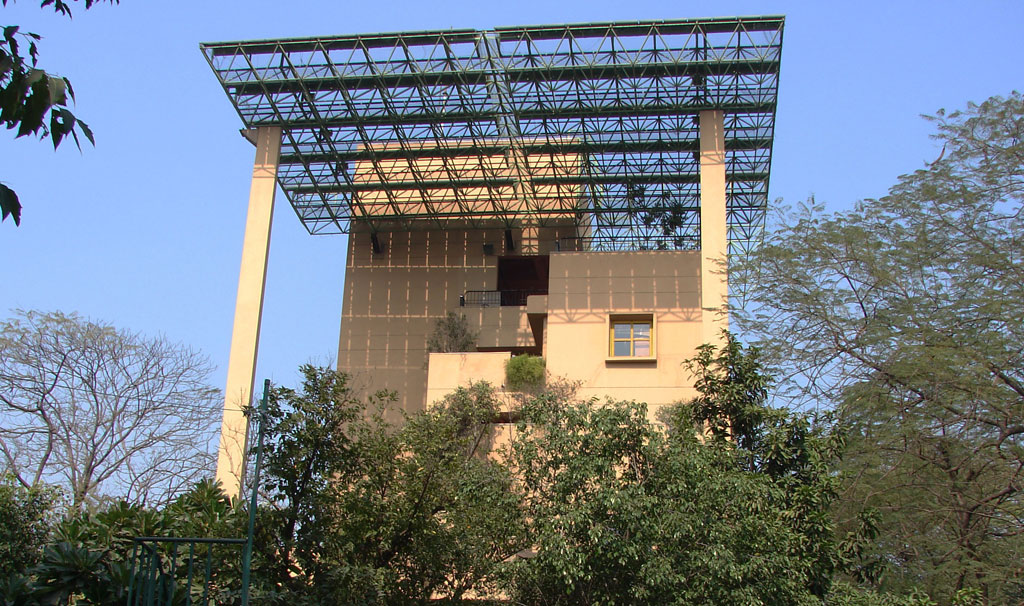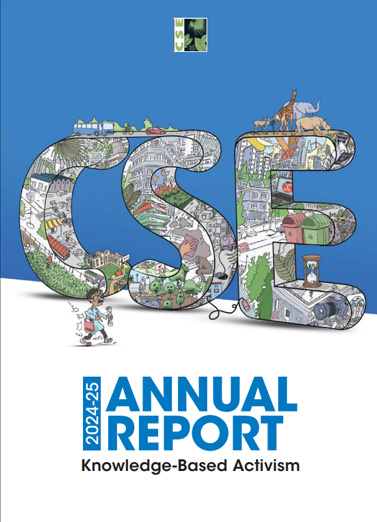
Centre for Science and Environment (CSE) is a public interest research organisation based in New Delhi.
CSE researches and communicates the urgency of development that is sustainable and equitable.
We believe that the scenario today demands using knowledge to bring about change. This is what we aim to do.
The challenge, as we see it, is two-pronged. On one hand, millions live within a biomass-based subsistence economy at the margins of survival. The environment is their only natural asset. But a degraded environment means stress on land, water and forest resources for survival. It means increasing destitution and poverty. Here, the opportunity to bring about change is enormous by regenerating the natural capital. But it will need a commitment to reform in the way we do business with local communities.
On the other hand, rapid industrialisation is throwing up new problems: growing toxification and a costly disease burden. The answers will be in reinventing the growth model of the Western world, so that we can leapfrog technology choices and find new ways of building wealth that will not cost us the earth.
This is the challenge of the balance.
Our aim is to raise these concerns, participate in seeking answers and – more importantly – in pushing for answers and transforming these into policy and so, practice. We do this through our research and by communicating our understanding through our publications.
We call this knowledge-based activism. We hope we will make a difference.
CSE has a strategic plan for 2025-2030, which is available here
We believe that our work must contribute to change that we so desperately need in our world. We have worked on understanding our theory of change. Read more
CSE’s publications and informational products have been its strength and they have always combined research and readability to get the message across.
CSE’s efforts are specifically designed to create awareness about problems and propose sustainable solutions. Research at CSE, spans across sectorwhere we do in-depth research which combines state of art synthesis with field research and seeks to look for solutions in accordance with CSE’s core values. We believe information must lead to analytical research and this research to become knowledge must be imbued with our societal values of inclusion and justice. The more we research and the more the research leads to action, the more we need to know more.

We believe that our work must reach multipliers in society – from professions to educators to public administrators. To do this, we have set up the Anil Agarwal Environment Training Institute (AAETI), which is a state of art teaching and learning facility, located some 2 hours from Delhi. AAETI has a range of capacity building programmes, which are designed to building knowledge and skills for practice
CSE’s Environment Monitoring Laboratory is an independent, analytical laboratory that monitors toxic contamination of the environment and uses the results of this monitoring to advocate for improved regulation of the use of toxins in the country.
We believe the quality of our work determines funds and the character of funding we seek. Our funding policy is that we will raise funds for priorities that we set for ourselves; our annual plan is our strategy for action; which is then used to then raise funds; we work hard to get funded so that there are no ties attached; we stay credible and independent. We remain deeply grateful to our funders for their continued support and faith in our work. Please see here for more details on our financial reports.
Over the years we have worked hard to build an internal work culture, which is based on our societal principles, it is inclusive, participatory and most importantly focusses on the change we seek. We want CSE to remain driven by the challenges in the outside world. So, the management system we design are fit for purpose for the internal culture of work at CSE. Our policies, management and internal controls have been strengthened over time, with inputs and recommendations from periodic reviews as well as from adapting best practices from peers, and of course in strict compliance with the laws and regulations of the Government of India. We of course will continue to learn and adopt best practices -- in particular, those that make us effective in our work and accountable. Please see here for more on our internal policies and code of conduct.

Anil Kumar Agarwal
FOUNDER | DIRECTOR
Anil Kumar Agarwal was the founder-director of the Centre for Science and Environment, India’s leading environmental NGO. Agarwal spent his lifetime advocating policies that involve the people in natural resource management and learn from India’s own traditions.

Sunita Narain
DIRECTOR GENERAL
Sunita Narain has been with Centre for Science and Environment since 1982, and has headed it since 2000. Her research interests range from global democracy with a focus on climate change, to the need for local democracy where she has worked on forest-related resource management, water and waste issues. Ms Narain serves on the boards of different organisations, and writes and speaks regularly on key concerns of environment and development.

